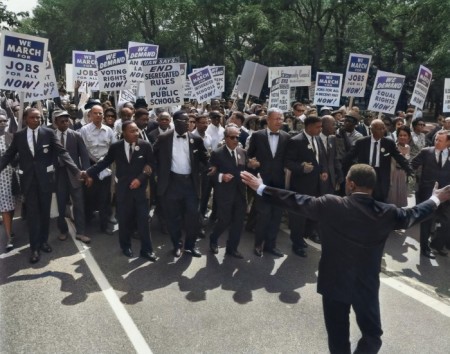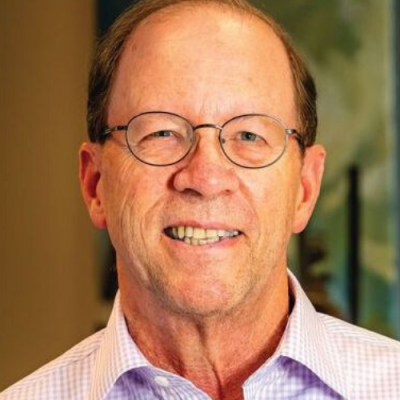Racism and the value of human life

In these unprecedented times of division, grief and pain, we are forced to ask ourselves, “What is the value of human life?”
Human life, if there is no God, is cheap. In a godless universe, man is nothing more than a mass of chemicals.
Friedrich Nietzsche said that humans are merely animals. B.F. Skinner, the famous psychologist at Harvard University, reduced people to the status of a machine. Jean-Paul Sartre, the French existentialist, regarded mankind as nothing more than a “useless passion.”
Before he became a Christian and recanted his atheistic belief, Mortimer Adler, one of the most prominent philosophers of the last century, saw human beings as nothing more than sophisticated animals. For this reason, he said, “There is no logical reason to treat mankind differently from any other animal. Therefore, to exploit minorities or to exterminate the homeless could not be condemned any more than killing steers in a slaughterhouse.”
Again, if there is no God, Adler is logically correct.
Contrast this with the life of Mother Teresa, the benevolent Catholic nun who dedicated her life’s work to caring for the sick and poor of Calcutta, India. These people lived out their lives in pain, fear, and loneliness. Many times, Mother Teresa was asked why she cared for those who were doomed. She responded along the lines of, “They are created by God; they deserve to die with dignity.” She clearly believed that every person is precious and has a great value that was formulated by God’s creative act.
So, whose perspective is correct? And what does this have to do with racial reconciliation?
I was born in 1953 and grew up in the turbulent 1960’s. During this time I lived in Birmingham, Alabama, where there were all types of racial turmoil and prejudice.
I grew up in an all-white neighborhood, went to all-white schools with all-white teachers, and attended an all-white church. I was totally segregated from the black community and I knew no blacks other than Edith, who worked for our family. This is how I grew up. Looking back, I assumed this was the way the rest of the world worked.
However, I recognized there were certain undercurrents in our city over racial inequality and social upheaval in the black community. Birmingham became an international symbol of racism in 1963 when Bull Connor directed the use of fire hoses and police dog attacks on blacks. As a nine-year-old, I didn’t really understand what was going on but it troubled me.
In March of 1965, I remember driving home from the beach. It was a Sunday. We stopped to pick up a black man who was hitchhiking to Selma. I remember my Dad asking him if he was participating in the march and the man said that he was going to see his girlfriend.
Then something happened in August of 1965 that is still seared in my memory. Our family went to New York to attend the World’s Fair. One day we stopped by Macy’s department store. I was thirsty and looked for a water fountain. When I finally found it, I noticed there were two fountains, one for blacks and one for whites. To this day I can remember how stunning this was to me. Yet this is the world I grew up in.
At the age of fourteen, I can remember where I was when it was announced that Martin Luther King, Jr. had been assassinated. I can vividly recall the rioting and the burning of property all over the country. It was a frightening time.
Looking back, the issue of racism was never talked about at school, in church, or even at home. It was a subject that was just left alone.
It was with this background that I headed off to college as an eighteen-year-old to the University of the South. I hate to admit this but I was a quiet, silent racist.
Three weeks into my first semester of college, I was studying in my room and there was a knock on the door. There stood a black student, a senior who had some type of petition he was looking for students to sign. I invited him into my room and we had a conversation I will never forget. He was the first black man my age who I had ever talked to. His name was Eric Benjamin and I will forever be grateful to him as he blew away so many of my prejudices.
In March of 1974, I came to faith in Christ. This event not only changed my worldview but also the way I viewed people and their value. I realized the gospel cannot co-exist with racism, it is mutually exclusive. Jesus tells us to love our neighbor. Not our black neighbor nor our white neighbor, but all of our neighbors. And more specifically to love them as we love ourselves. We are told in Romans 2:11 that God shows no partiality, and neither should we.
Richard D. Land, Christian Post Executive Editor stated recently that “...there is only one race — the human race. Scientific research is now confirming what the Bible told us all along — we all come from one common ancestor.”
So how do we deal with the sin of racism that exists in each of our hearts? Are protests or movements sufficient for lasting change?
CP Guest Contributor Ryan Bomberger concludes in his recent article, “As a Christian, the Church should be leading on these issues instead of sheepishly following a movement hostile to the Gospel.
I think many of our leaders are trying to determine how we find our way out of this racial divide. I keep hearing of new legislation, but really, will new laws root out a heart of superiority? Can a law make a white person love a black person? I’m now 66 and wonder if much has really changed from the 1960’s.
Billy Graham was often criticized back in the 1950’s and 1960’s because he consistently spoke out about racism and injustice, always pointing to the Gospel as the solution. In his 1977 book, World Aflame he wrote these powerful words which have proved to be prophetic:
In Christ the middle wall of partition has been broken down. There is no Jew, no Gentile – no black, white, yellow, or red. We could be one great brotherhood in Jesus Christ. However, until we come to recognize Him as the Prince of Peace and receive His love in our hearts the racial tensions will increase, racial demands will become more militant, and a great deal of blood will be shed. The race problem could become another flame out of control.
Finally, a book that I read back in the 1980’s profoundly impacted my life and caused me to realize how God can change the human heart. He can transform hate to love, selfishness to selflessness, meanness to kindness, and misery into joy.
The book was Through the Valley of the Kwai by Dr. Ernest Gordon. Gordon recounts his experience in a Japanese prison camp during World War II.
He tells how death was the chief topic of conversation. He describes the inhumane living conditions to which the prisoners were subjected:
As conditions steadily worsened, as starvation, exhaustion, and disease took an ever-growing toll, the atmosphere in which we lived was increasingly poisoned by selfishness, hatred, and fear. We were slipping rapidly down the scale of degradation. You could say we lived by the rule of the jungle – I look after myself and to hell with everyone else. Consequently, the weak were trampled underfoot, the sick ignored and resented, the dead forgotten. When a man lay dying, we had no word of mercy. When he cried out for help, we averted our heads. Men cursed the Japanese, their neighbors, themselves, and God. We had no church, no chaplains, no services. Many had turned to religion as a crutch. But the crutch had not supported them, so they had thrown it away. We had long since resigned ourselves to being derelicts, motivated by hate.
Then several incidents took place that began to transform the prison camp. Several of the prisoners, who were devout Christians, sacrificed their lives for other prisoners. In one situation, a man was sick and dying, and his Christian friend would draw his own ration but wouldn’t eat it. He would take it to his friend and insist that he eat it instead. Over time the sick man got better, but his friend finally collapsed and died from starvation.
One day Gordon was approached by an Australian sergeant. He said that he and his men wanted to explore Christianity. He said, “Maybe there is something to it that we haven’t understood.” And they knew that Gordon had a Bible.
At their first meeting, there were several dozen men in attendance. Gordon would read and expound on the New Testament. They had discussions about their own inner questioning and their desire for spiritual truth.
Through the Bible readings, they came to know Jesus. They realized He understood them because of what He had faced himself. They began to see Jesus, the carpenter from Nazareth, as the incarnate word. Gordon said, “In the fellowship of freedom and love, we found truth, and with the truth a wonderful sense of unity, of harmony, and peace.”

The numbers continued to grow. As more and more men put their faith in Christ, they developed a keener insight into life and its complexities. As Gordon described it:
We were learning what it means to be alive – to be human. As we became more aware of our responsibility to God the Father, we realized that we were put in this world not to be served but to serve. This truth touched and influenced many of us, even those who shunned any religious quest. There was a general reawakening. Men began to smile, to laugh, and even to sing.
He goes on to describe the first communion:
With expectant hearts men had come to receive the strength that only God could give. The elements were of our daily life – rice baked into the form of bread and fermented rice water. The solemn words of the fraction were said.
We broke the bread as it was passed to us and then passed it to our neighbor. The elements were returned to the table, a prayer of Thanksgiving said, a hymn sung, and a blessing given. We slipped quietly away into the singing silence of the night, cherishing as we did so our experience of the communion of saints. The Holy Spirit had made us one with our neighbors, one with those at home, one with the faithful in every land, in every age, one with the disciples.
My desire for the rest of my life is to take this message of God’s transforming love out into the world. This is the solution to the problem of racism and Billy Graham said it best: “The closer the people of all races get to Christ and His cross, the closer they will get to one another.” Amen!
Richard E. Simmons III is a Christian author, speaker, and the Executive Director of The Center for Executive Leadership, a non-profit, faith-based ministry in Birmingham, Alabama. His best-selling titles include The True Measure of a Man, The Power of a Humble Life, Wisdom: Life's Great Treasure, and his newest book, Reflections on the Existence of God. Follow Richard on Facebook, Instagram, and LinkedIn @thecenterbham. Tune in to Richard's Reliable Truth Podcast on your favorite podcast app.




















